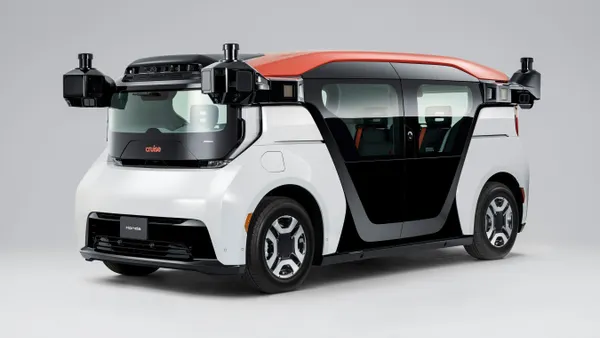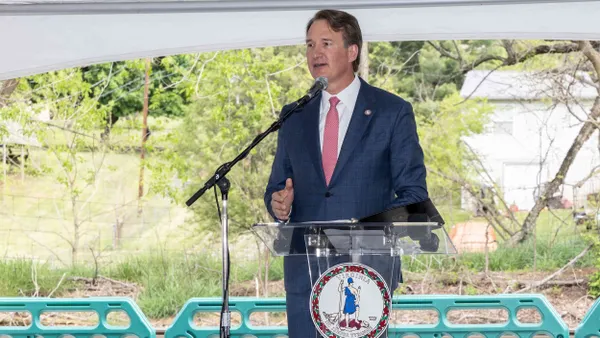Dive Brief:
- The California Department of Motor Vehicles (DMV) announced that it will allow auto companies to test their self-driving vehicles on public roads without a human safety driver in the vehicle. Previously, companies needed to have an approved human driver inside who could take over if danger arose.
- The DMV released regulations for autonomous vehicles (AVs) that require companies to apply for and be granted a permit for AV testing. The permit fee is $3,600 and allows each company to operate up to 10 AVs without test drivers. Add-on permits will be $50 for each additional block of 10 AVs.
- The new regulations take effect on April 2 and the DMV will begin issuing permits at that time.
Dive Insight:
AV manufacturers will need to adhere to a slew of regulations governing vehicles that do not have a test driver. The regulations will offer manufacturers better real-life scenarios and more opportunities to spot areas that need improvement in AV technology. "This is a major step forward for autonomous technology in California," DMV Director Jean Shiomoto said in a statement. "Safety is our top concern."
One requirement is that, although the vehicles do not have a driver inside, they must maintain communication with a remote operator and have the ability to communicate with law enforcement. Manufacturers also are required to provide ample notification to municipalities on whose roads the AVs will be tested. They will need to prove that the AVs are equipped with data recorders, and that they meet industry standards to prevent and respond to cyber attacks.
Although AV trials are taking place in select parts of the United States, most of the trials are in remote areas and not on public roads. Most also involve a human who can take over control in an emergency. A high-profile example is the man caught disguised as a car seat while testing an AV in a busy section of Arlington, VA. He was part of research to determine how people react to driverless vehicles, but his attempt at disguise ended up gaining more attention than the actual AV.
The regulations do not cover autonomous trucks or other commercial vehicles, but the DMV indicates it will begin working with the California Highway Patrol to explore safety and regulatory measures for those vehicles. AVs hold a lot of promise for the trucking industry and how the vehicles will be integrated is a topic of much discussion.











